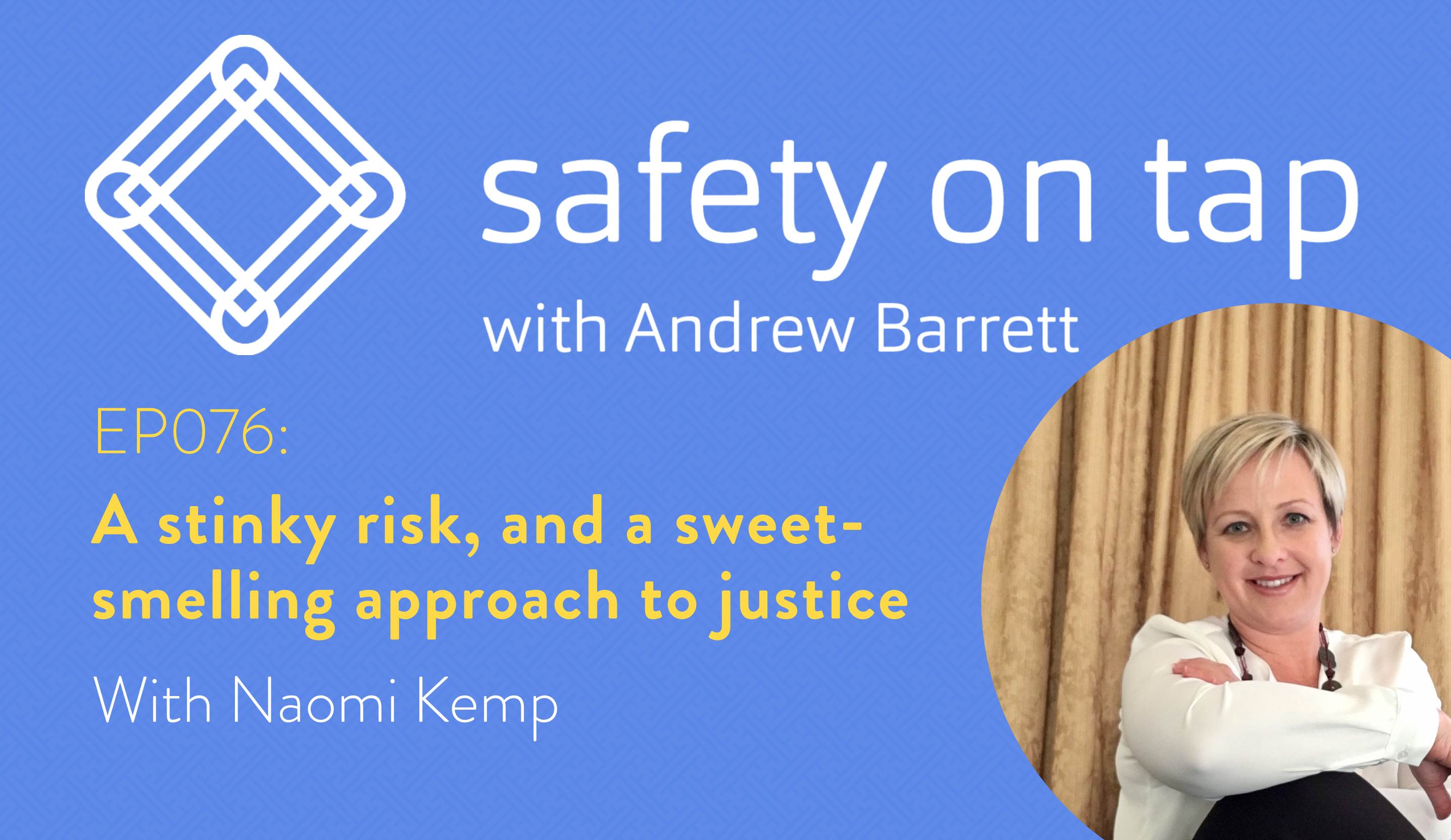Today I’m joined by Naomi Kemp, who wears a few hats including a risk manager, expert advisor on enforceable undertakings, speaker and board member of the Safety Institute of Australia.
This episode is brought to you thanks to Safety on Tap Connected, the world’s first professional growth accelerator for health and safety professionals. For many of us, if we want to get fit, we go to a gym which has the right equipment and environment to help us, and some of us engage a fitness coach or trainer to keep us accountable, draw on their wisdom, and drive us towards our goals. Safety on Tap Connected is a lot like that. As a coach, I love helping members clarify their goals and smash through their challenges in a way that their peers or boss, or they themselves, can’t.
One member recently had a problem balancing commitments with two very important, very sensitive stakeholders. This person has said yes to doing two things at the same time, which just wasn’t going to be possible as they originally planned. Through our coaching I helped clarify what they were trying to achieve for both stakeholders, and working through alternate options to keep them both happy. Having a coach like me take them through a process helped get out of the mental spinning we all find ourselves in, and clarifies the steps required to move forward. The SoTC member, and both stakeholders were all very happy.
Smart professionals use smart ways to learn and improve their performance. Conventional coaching costs thousands of dollars a month, yet you can become a member of SoTC for about the same price as only 3 coffee’s a week. That’s it! . Find out more and hop on the waiting list at safetyontap.com/connected
Naomi Kemp will be speaking at the 2018 Safetyscape convention, part of the new events offering from the Safety Institute of Australia on from the 22nd to 24th of May in Melbourne. The inaugural #SAFETYSCAPE Convention will enable an array of organisations to assemble as the largest gathering of Health & Safety Industry professionals across a program of events, workshops, forums and the Safety Institute of Australia’s own two day National Health & Safety Conference: In Practice along with the Workplace Health & Safety Show. But don’t forget, as I’ve been saying for a while – most of your learning and in turn performance will come from social and experiential learning – so whilst the knowledge you will gain will be great, it’s even better to meet new peers and strengthen relationships with your network, share stories and reflections from your own experience.
Visit safetyscape.com.au to find out more and get your ticket.
Here we go:
I reckon I’ve forgotten in previous episodes to tell you that alongside wonderful people like Naomi, and previous guests Darren and Mykel, I’ll also be speaking at the National Health and Safety Conference in May 2018 in Melbourne – I’ll be breaking the mould of traditional conference presentations to engage you in 19 things from outside health and safety which will help you improve your effectiveness. I’ll be there to share, it would be great to meet you there too.
Here’s my two takeaways from that chat with Naomi Kemp:
Takeaway #1: Do you suffer a bit of professional blindness like I do? Are things like general hygiene and sickness things that don’t make much of a blip on your radar? Or maybe you have the inverse challenge, like agonising over which brand of sanitiser to select, when there are bigger fish to fry in your risk profile? I don’t have an answer for you – but a worthy reflection for us each individually to realise and manage our own biases, our own limitations, and how we manage those things. For this first time in my career this past week I provided a client with a report which included a discussion about bias, and what I had done proactively to manage these in the work I was doing. Not perfect, but a healthy discussion which they valued a lot.
Takeaway #2: We are all informed by philosophy. Health and safety in the current legal philosophy is largely retributive, so I’m not surprised that many of us and our organisations default to retributive approaches – what went wrong, who is to blame, and what is the publishment. An alternative philosophy is restorative – who has been wronged or harmed, how can we help them, and how can we restore relationships and trust? You don’t need to change much to start to be more restorative – you can do it starting today in the language you use when talking about incidents. You can be a stealthy restorative justice advocate, and gradually, subtly lead change. Check out some links below for resources I’ve found helpful to do this:
Now I don’t just talk about you doing more reflective learning – I practice what I preach. Each episode I create handwritten notes, along with a reflection template to help you reflect and learn more from each episode. You can download these from any of the episodes webpages (so this episode’s one is right below here!), and you will also get a copy of the full transcript, all for free! Grab your freebies down below!
Until next time, what’s the one thing you’ll do to take positive, effective or rewarding action, to grow yourself, and drastically improve health and safety along the way. Seeya!
Here’s your FREE download of:
– my handwritten notes, PLUS a reflection template for you to use for this episode.
AND
– The full transcript of this episode.
I’ll also send you the links to all the available back-catalogue of reflection templates and transcripts so you can access these at any time.

